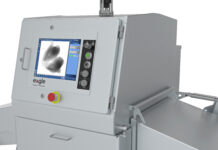
Research ranks efficacy of top sugar substitutes
PULLMAN, Wash., May 25, 2023 (GLOBE NEWSWIRE) — via IBN — METER Food’s Research and Development Lab has published findings from a recent study exploring the pros and cons of top alternative sweeteners that food companies must consider when replacing sugar in product formulations.
Pressure from consumers and governmental agencies to reduce the amount of sugar in foods has turned the sugar alternative industry into an $18 billion market.
“As demand for healthier snacks and treats continues to grow, innovative new sweeteners abound,” said Mary Galloway, METER Food R&D Lab Manager. “In their zeal to develop the next great clean-label snack that is low in calories but still tastes great, food companies are finding that each sugar substitute comes with a special set of challenges. Simply put, replacing sugar seems simple, but it isn’t.”
While alternative sweeteners make it possible to create sugar-free versions of old consumer favorites, there’s more to sugar and its substitutes than just taste. Removing sugar affects a food’s sweetness, color, leavening, tenderness, moisture, texture, freezing point, and more.
As substitutes like Stevia, Sorbitol, and Monk Fruit Extract don’t perfectly mimic sugar’s characteristics, food scientists must identify new ways to achieve the sugary taste, texture, shelf-life, and appearance that will satisfy consumers. To achieve their goals, formulators and food companies need to identify and prioritize which traits of sugar they’re trying to mimic and which they’d like to avoid.
Findings from study identifies the benefits and challenges with top alternative sweeteners and the scientific concepts that explain sugar’s unique characteristics. Galloway presents a roadmap for formulators proving how water activity measurements are the most effective means for minimizing the challenges associated with sugar substitutes and how blending different sugar alternatives can yield better results.
“Unfortunately, there is no perfect sugar substitute. Many, if not all substitutes have a downside – unpleasant taste, lack of humectancy, caloric value or glycemic index, inability to brown, or others,” added Galloway.” Formulators who are seeking sugar’s humectant abilities should take note that alternative sweeteners in a crystalline state will not bind water well. If formulators aren’t careful, alternative sweeteners could crystallize and release moisture in a final product, affecting flavor, texture, consistency, and shelf-life.”
Galloway notes that the project’s data can be graphed in moisture sorption isotherms. Isotherms visualize the relationship between moisture content and water activity levels in a material at a set temperature. Isotherms help formulators and food scientists predict the physical characteristics, shelf lives, and packaging needs of their products, along with many other insights.
Access to the full study.
About METER Food
METER Food is a division of Addium, a leading technology company that delivers real-time, high-resolution data that fuels production and processes for the food quality, environmental research, urban and agriculture sectors. Through the power of its employees, Addium combines science, engineering, and design expertise to turn physical measurements into useful information.









